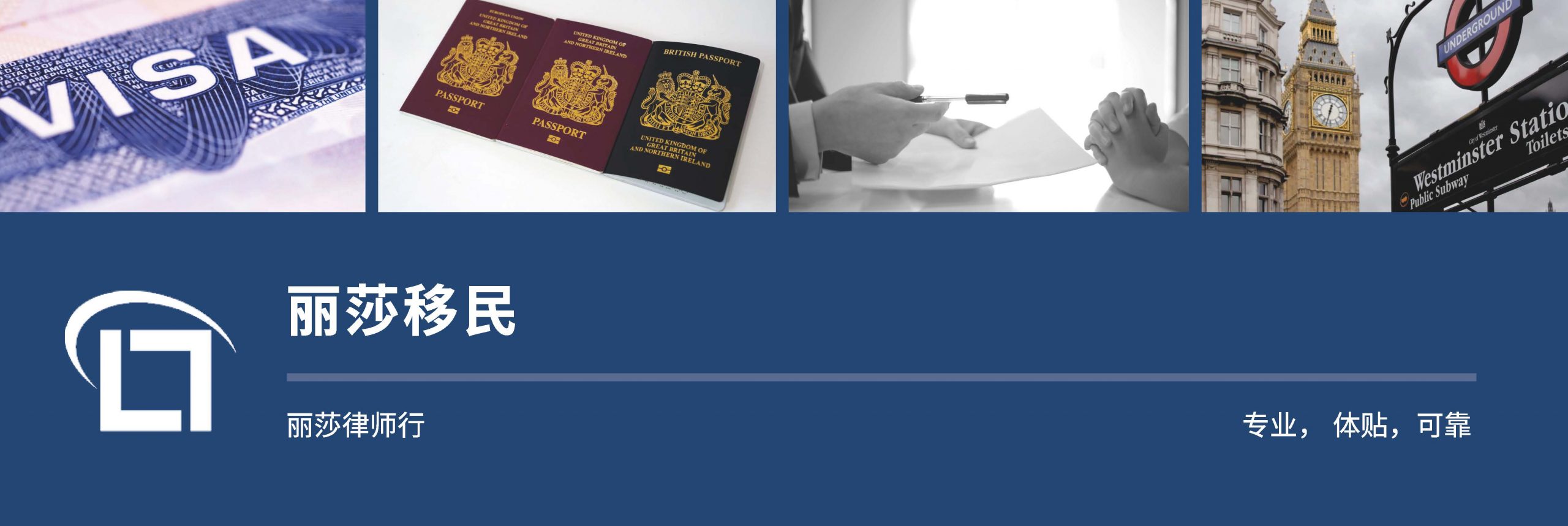The UK Migration Advisory Committee (Migration Advisory Committee), also known as the “immigration think tank” MAC, released its annual (immigration) report reviewing and summarizing 2022 in the last month of the countdown to 2023.
In this latest report, MAC, as usual, gave their opinions and suggestions on the current immigration system and system in the UK. Especially in 2022, a year full of policy changes (or even “variables”), the “comments” given by MAC have a certain degree of reference and/or directionality.

→ First, MAC slams the UK government for focusing too much on “net migration figures” and reiterates the bullishness of “international students”
It means that MAC is quite disapproving of the British government’s continuous mention of “net immigration figures” and “catch international students”.
MAC said that if you simply look at the data, this year compared with last year, the “net immigration number” has indeed increased by 331,000. However, MAC reminded the British government that this number should not be just looked at “on the surface”, but to “explore inside”.
What the MAC is saying is that the numbers seem to have increased because there are “new routes” being introduced, notably increased immigration from Ukraine and Hong Kong (and these immigrants are also specifically opened up by the Home Office to let them into the UK) ; as a result, the net migration figure will of course increase.
But MAC believes that this (rising) phenomenon will then slow down and stabilize. Therefore, it is unwise for the British Home Office to ask “international students” to take the blame at this time.
The MAC pointed out that in their past reports, they have highlighted the “huge benefits” that international students bring to the UK. On this point, their position remains unchanged, and they once again demand that the British government need to adopt MAC’s recommendations for “international students” (that is, they should be more welcome, rather than restricting international students from coming to the UK).
The MAC also added that they expect the UK labor market to soften in the coming months and not be as tense as it has been in the past few months; as a result, applications for work visas will decrease.
MAC emphasized that if the British Home Office wants to make any changes (immigration policy), it should follow the government’s fiscal policy instead of going its own way. (Here, MAC is also warning the Ministry of the Interior from the side, not to stare at “international students” blindly, lest the gain outweigh the loss in the end).
→ MAC advises UK government to adopt changes to reduce the risk of exploitation in the labor market (for immigrants)
This is mainly reflected in several levels, including:
Allowing ‘refugee claimants’ access to work rights and easing restrictions on their ability to work in the UK. MAC believes that the current relevant policies only allow refugee applicants to apply for work rights after waiting for more than 12 months, and basically can only do “shortage jobs”, which may prompt refugee applicants to work illegally and aggravate workplace/employer exploitation risk. MAC believes that the Ministry of the Interior should review relevant policies in this regard;
English requirements should not be lowered, or should be increased. Poor English proficiency among migrants also played a role in the possible “exploitation” of migrants, the MAC said. However, MAC does not mean that it is necessary to increase the English threshold for visa categories such as Skilled Worker (Skilled Worker) that already has B1 English requirements, but that for visas of other work categories, certain English requirements are also required, not relax. For example, MAC, for example, expressed concern that the “butcher” (Butcher) work is a “seasonal worker” rather than a “skilled work visa” (that is, bypassing the relevant restrictions of the skilled work visa);
It should make it easier for employees to “switch employers” and reduce/remove the “cooling-off period” requirement. It should be noted that the work visa mentioned by MAC here is based on all visa categories (general direction) that can work in the UK, not just a few skilled work visas as we are familiar with. In this regard, MAC believes that if employees are not easy to switch employers, it may also lead to “exploitation” of employees by employers, because employees will find it difficult to resist unreasonable demands or practices of employers under the premise of fear of “losing their visas”. MAC also stated that further, if employers do not understand the relevant regulations enough, it may also exacerbate the situation of “exploitation”;
Reduce the fees associated with applying for permanent residence (or should I say “transfer to permanent residence”). This refers in particular to the permanent residence-oriented work visa category. The MAC argues that high immigration application fees can also lead to “exploitative” situations. For example, the employee does not have that much money and can only borrow money from the employer to pay for the immigration application; then the unscrupulous employer may use this as a threat to make unreasonable arrangements or requirements for the employee. Here, MAC does not say that it is necessary to adjust the fees of related work visas; but MAC believes that if the fee for permanent residence application is reduced, it can at least ensure that employees can (relatively) faster or easier to deposit/raise To a certain extent, the cost of applying for permanent residence can avoid employees having to continue to “renew” and other expenses, thereby ending the situation of continuously paying expensive visa fees;
Finally, the MAC believes that the relevant units should step up “enforcement” operations. This does not refer to the Immigration Bureau’s own immigration enforcement, but that the Immigration Bureau should work with other relevant agencies to ensure that “exploitation” is reduced or even avoided. Only through a certain degree or means of “enhanced publicity” can employers understand what situations are “exploitation”, and it is illegal for employers to do so (this is actually to let employees know at the same time that if they are treated in any way, would be incorrect and illegal).
MAC is actually expressing that the British government actually ignores the “labor rights” of immigrants to a certain extent. This is not to say that immigrants who come to work in the UK enjoy less legal protection than natives. However, from the perspective of government policy, the current focus is more on how to “control” immigrants rather than “protect” them. The suggestions listed above by the MAC actually want the government to think “from a different angle” and change the protection of immigrants from passive to “active”. Take the initiative to reduce the possibility of immigrants being “relatively disadvantaged” through policy modification and actual implementation.

→ At the same time, MAC believes that the immigration policy of the Ministry of the Interior can be adjusted according to the actual labor market needs of each region
For example, MAC believes that the “rural visa pilot” (Rural visa pilot) proposed by the Scottish government has a positive impact. However, MAC also pointed out again that despite this, they do not support that the “salary standard” of the work visa should be raised or lowered with different regions, and there should be a consistent requirement.
此外,MAC也提醒英国政府,在没有强有力的经济理由的情况下,不应该再轻易承诺要继续推出新的(工作类)签证路径。MAC的意思是说,英国已经逐步从脱欧和新冠疫情的影响中走出来,未来会更趋于平稳;所以政府应该多观察,而非急于做些什么。MAC也认为,英国内政部推出太多新的签证路径,也可能造成“剥削”可能。
在这份报告的最后,MAC表示他们原本对于“短缺工种清单”(Shortage Occupation List)的重审工作,目前已经在内政部的指示下“暂停”。原因是,必须等内政部对于未来的移民政策“更清晰”后,MAC才能根据届时的政策走向,来给出更加符合相关情况/政策的名单。
或许,连MAC都能看出来,英国内政部目前确实还是“挺混乱”的。
今天的文章就到这边,如果您对于文章内容,或者其他英国法律方面,有任何疑问,都欢迎进一步咨询丽莎律师行。
任何英国税务方面的问题,也可以联系咨询丽莎会计行。
觉得丽莎的文章不错?请不要吝于点赞和转发!您的支持是丽莎继续前进的动力,我们将尽力为莎粉们提供最新最全的实用信息。
> 丽莎的“掌上律师”服务 <
如果莎粉们对于丽莎的“掌上律师”服务有任何疑问,或者想要了解如何使用丽莎APP,莎粉们可点击这里 ↓
丽莎以简易图表,一步一步带您使用丽莎律师行的专属APP。
您和我们只有一键之隔。委托我们,您完全可以更加省时省力。对于住得远的莎粉,您更可以省下车费和舟车劳顿。丽莎只想为您做得更好。您说,我们做!委托丽莎,从来没有如此简单过!
如果莎粉们对于丽莎的“掌上律师”服务有任何疑问,或者有其他法律问题,都可以直接联系丽莎律师行(www.lisaslaw.co.uk),或者通过我们旗下官网和《丽莎知道》微信公众号(UK-LISA),官方微博(www.weibo.com/lisaslaw)咨询丽莎。
Lisa Law Firm: Located in London, it radiates around the world. Your reliable British Chinese law firm.
Contact email of Lisa Law Firm: info@lisaslaw.co.uk
Contact number: 020 7928 0276
Contact WeChat ID: lisaslaw003
“Lisa Knows” official Weibo: www.weibo.com/lisaslaw; mobile version: www.weibo.cn/lisaslaw
Scan the WeChat official account of “Lisa Knows”:





Your article helped me a lot, is there any more related content? Thanks!